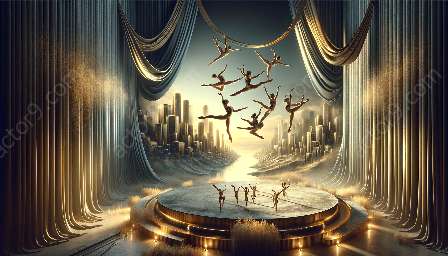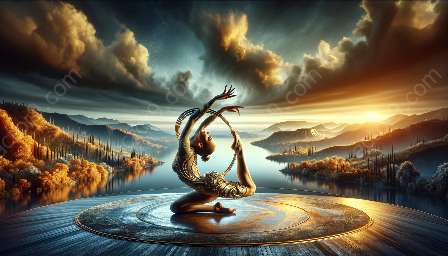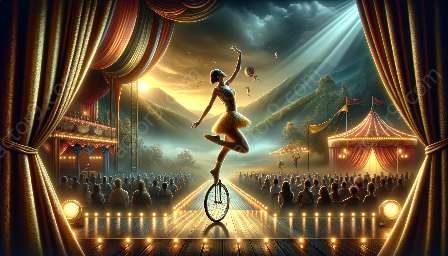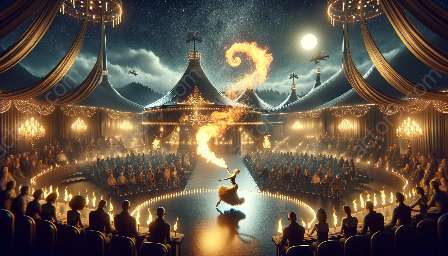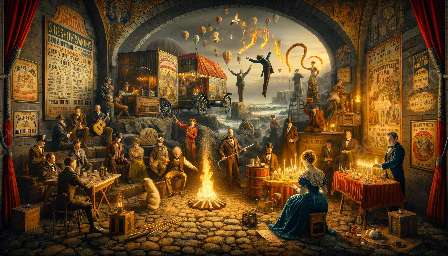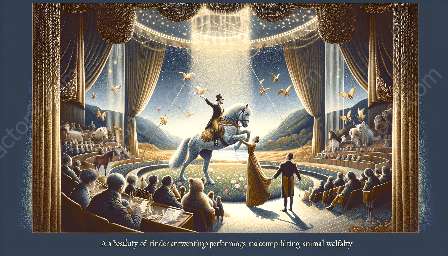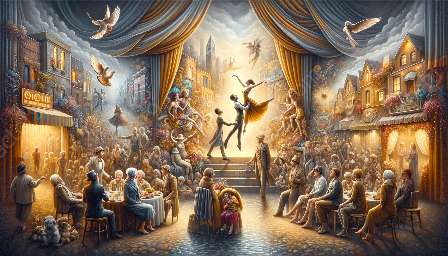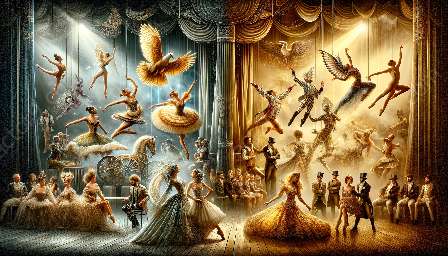Circus arts showcase impressive physical performances, but the demands extend beyond the physical to encompass psychological skills and strengths. Understanding the psychological demands of circus arts is crucial for the development and training of circus performers. This article explores the mental toughness, resilience, and creativity required in circus arts, demonstrating how these play a vital role in the development and training of circus artists.
Mental Toughness in Circus Arts
Circus arts require a high level of mental toughness to perform awe-inspiring acts such as aerial acrobatics, tightrope walking, and fire dancing. Performers must exude confidence, composure, and focus while executing complex and high-risk maneuvers. Mental toughness enables circus artists to overcome fear, self-doubt, and anxiety, allowing them to push their limits and achieve extraordinary feats.
Resilience and Adaptability
Resilience is a key psychological demand in circus arts. Performers face the constant challenge of mastering new skills, enduring physical strain, and recovering from setbacks and injuries. The ability to bounce back from failure, adapt to changing circumstances, and maintain peak performance under pressure is crucial for circus artists. Developing resilience enables performers to thrive in the demanding and unpredictable nature of circus arts.
Creativity and Innovation
Circus arts demand creativity and innovation, as performers constantly seek to captivate and entertain audiences with original and daring acts. Creativity in circus arts involves not only designing and choreographing performances but also problem-solving in real-time, adjusting to audience reactions, and improvising when faced with unexpected challenges. Cultivating creativity is essential for the ongoing development and training of circus artists.
Impact on Development and Training in Circus Arts
The psychological demands of circus arts significantly influence the development and training of circus performers. Training programs focus not only on physical proficiency but also on mental conditioning, resilience-building, and fostering creativity. Coaches and trainers emphasize the importance of mental toughness, providing support and guidance to help performers develop confidence, focus, and determination.
Furthermore, development in circus arts involves creating a supportive environment that encourages risk-taking, experimentation, and learning from failure. Training routines are designed to challenge performers both physically and mentally, promoting resilience and adaptability. Moreover, the emphasis on creativity and innovation in circus arts training encourages artists to explore new approaches, refine their skills, and push the boundaries of traditional performances.
Conclusion
Understanding the psychological demands of circus arts is essential for anyone involved in the development and training of circus performers. Mental toughness, resilience, and creativity are integral to the success of circus artists, shaping their approach to training and performance. By recognizing and addressing these psychological demands, the circus arts community can further support the growth and achievement of its talented performers.







